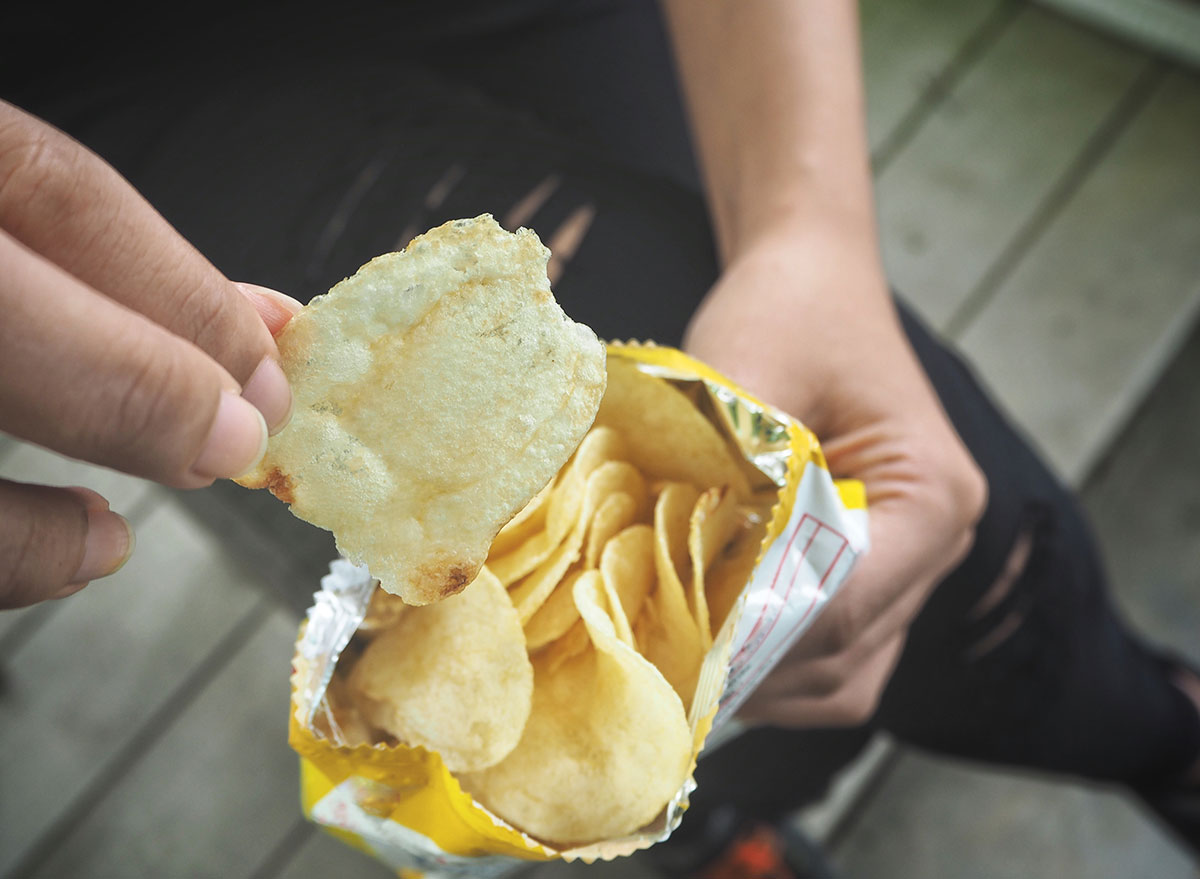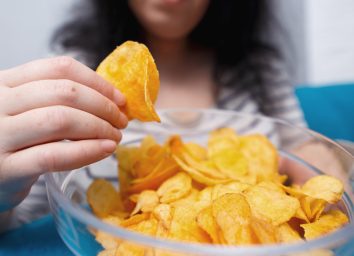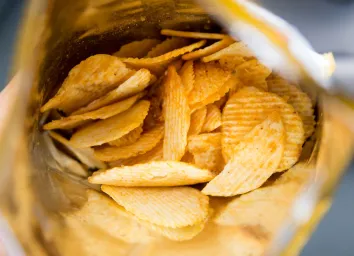The #1 Food to Avoid to Lose Weight, According to a Dietitian

With summer fast approaching and the craziness of Covid-19 behind us (at least for a little while), it would be an understatement to say that we’re excited to get out of the house and reconnect with friends and family like the good old days. But if you’re like many Americans and hopped on the sourdough, banana bread, and whipped coffee pandemic food trends, you may have noticed that you’ve put on a couple more pounds than you have in previous years—no big deal.
To start trimming back some fat, get outside! Walking for weight loss is highly effective, and it’ll be nice to get out of the house and breathe in some fresh air. Additionally, you should consider cutting back on some of the less-than-healthy foods that likely contributed to some of your weight gain over the last year. We’re not saying you need to overhaul your diet completely. Rather, you can focus on avoiding just one food that science has closely linked to weight gain: potato chips. (Related: Ugly Side Effects of Eating Potato Chips, According to Science.)
They may be delicious, but potato chips are regular culprits when it comes to gaining weight. In fact, one New England Journal of Medicine study found that potato chips were the number one food most closely linked to weight gain over a four-year period.
The Harvard researchers who conducted the study tracked the weight of over 120,000 participants over the course of four years.
On average, participants gained 3.35 pounds during this timeframe, and that four-year weight change was most strongly associated with the intake of potato chips, which they say accounted for 1.69 of those additional pounds.
How eating potato chips causes weight gain.
It doesn’t come as a surprise that a deep-fried snack food can cause weight gain:
“Like many snack foods, potato chips can be very caloric, especially if people are eating large portions of these crunchy snacks frequently,” says Lauren Manaker, MS, RDN, LD, founder of Nutrition Now Counseling and author of Fueling Male Fertility.
Manaker notes that the fact that potato chips are calorie-dense isn’t the only reason this snack food is linked to weight gain; it’s also that most people tend to eat more than one portion.
“One serving of potato chips is equivalent to one ounce of chips, or 18 chips. As a registered dietitian, rarely have I seen people limit their chip snacking to only 18 chips—especially if they have a family-sized bag sitting on their lap. Potato chips are an easy food to eat mindlessly, which can contribute to weight gain,” she says.
And if you’re pairing these chips with dip, that could further accelerate your weight gain.
“And if the chips are being used as a vessel for dips, know that many dips can be very caloric as well, and can contribute to weight gain,” says Manaker.
What to eat instead.
If you give up potato chips for weight loss, there are plenty of healthy alternatives you can replace this crunchy snack with.
“Kale chips, chickpea chips, and even chicken chips can offer up a satisfying crunch with extra nutrition, too,” says Manaker. (For more ideas, check out these 10 Weight Loss Snacks That Actually Satisfy, Recommended By Dietitians.)
If you’re not ready to go cold turkey on potato chips, Manaker says that’s ok considering that “potatoes are a natural source of nutrients and can be a part of a healthy diet.” She recommends the following:
“Portioning out one serving at snacktime and sticking to that amount can help manage weight goals,” she says, adding that “choosing baked potato chips can also be a nice alternative to fried choices.” Or try these 11 Best Brand Name Chips for Weight Loss.
For more healthy eating news, make sure to sign up for our newsletter!








